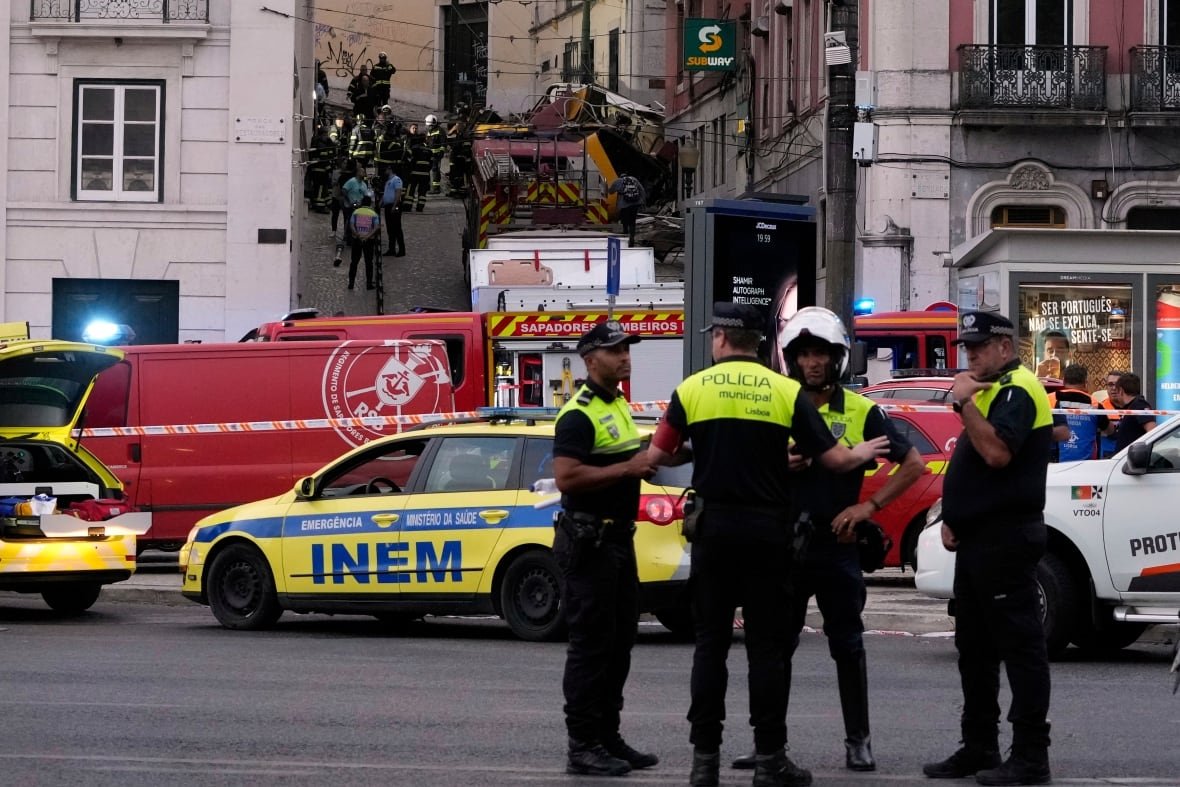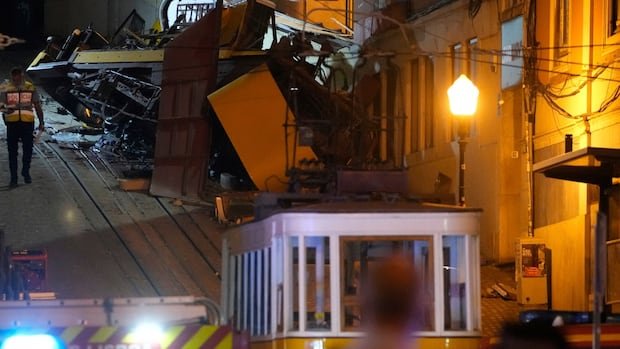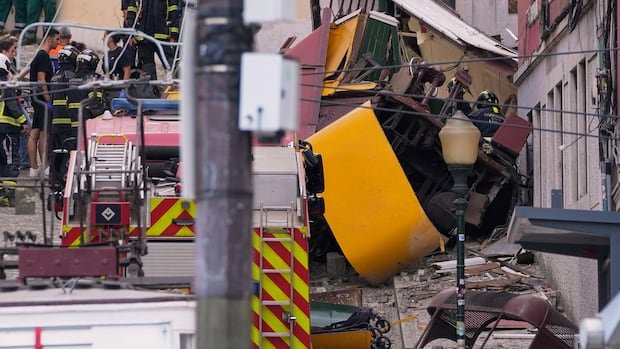At least 15 people died and around 18 were injured on Wednesday when Lisbon’s Gloria funicular railway car — popular with tourists and one of the city’s symbols — derailed and crashed, emergency services said.
Five of the injured were in serious condition and a child was among the injured, Portugal’s National Institute for Medical Emergencies said in a statement, adding that an unknown number of foreigners were among the injured.
Global Affairs Canada told CBC News it is “not aware of any Canadian citizens being impacted by this incident.”
Authorities called it an accident, the worst in the city’s recent history, and it cast a pall over Lisbon’s charm for the millions of foreign tourists who arrive every year.
Officials did not immediately provide a cause of the crash.
Emergency services and investigators continue to comb through the scene after Lisbon’s famed Gloria funicular railway car derailed and crashed on Wednesday. At least 15 people died and more than a dozen were injured at one of the Portuguese capital’s most popular tourist spots.
The Elevador da Gloria goes up and down a steep downtown hill in tandem with one going the opposite way, was lying on its side on the narrow road that it travels along.
Its sides and top were crumpled, and it appeared to have crashed into a building where the road bends. Parts of the vehicle, made mostly of metal, were crushed.
“It hit the building with brutal force and fell apart like a cardboard box,” Teresa d’Avó told Portuguese TV channel SIC.
Several dozen emergency workers were at the scene but most stood down after about two hours.
At least 15 people died and around 18 were injured when Lisbon’s Gloria funicular railway car, which is popular with tourists and one of the Portuguese capital’s symbols, derailed and crashed, an emergency medical service spokesperson told reporters.
Eyewitnesses told local media that the streetcar careened down the hill in the Portuguese capital, apparently out of control. One witness said it toppled onto a man on a sidewalk.
Carris, the company that operates the car, said scheduled maintenance had been carried out. It offered its deepest condolences to the victims and their families in a social media post, and promised that all due diligence would be taken in finding the causes of the accident.
Lisbon’s city council suspended operations of other streetcars and ordered immediate inspections, local media reported.
Portuguese President Marcelo Rebelo de Sousa offered his condolences to affected families, and Lisbon Mayor Carlos Moedas said the city was in mourning.
“It’s a tragedy of the like we’ve never seen,” Moedas said.
Day of mourning to be observed
Portugal’s government announced that a day of national mourning would be observed on Thursday.
European Commission President Ursula von der Leyen also sent her condolences. “It is with sadness that I learned of the derailment of the famous Elevador da Gloria,” she wrote in Portuguese on X.
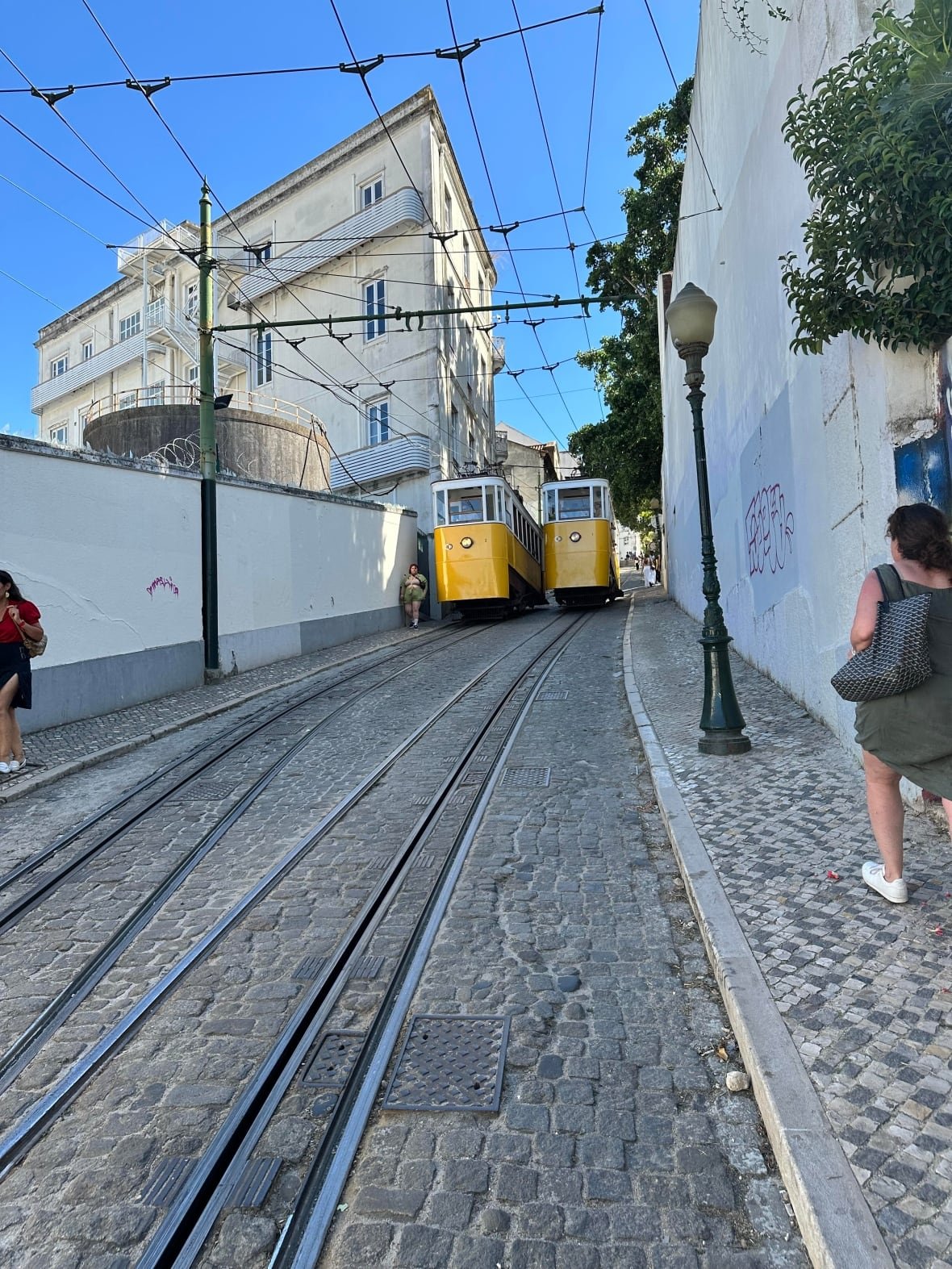
The crash reportedly occurred at the start of the evening rush hour, around 6 p.m. local time. Emergency officials said all victims were pulled out of the wreckage in just over two hours.
An investigation into the causes will begin once the rescue operation is over, the government said.
SITRA, a trade union, wrote in a post on social media that one of its members died in the accident.
Tram used by tourists and locals alike
The line, which opened in 1885, connects Lisbon’s downtown area near the Restauradores Square with the Bairro Alto (Upper Quarter), famous for its vibrant nightlife.
It is one of three funicular lines operated by the municipal public transport company Carris and is used by tourists and local residents.
The Gloria line transports around three million people annually, according to the town hall.
Its two cars, each capable of carrying around 40 people, are attached to opposite ends of a haulage cable, with traction provided by electric motors on the two cars.
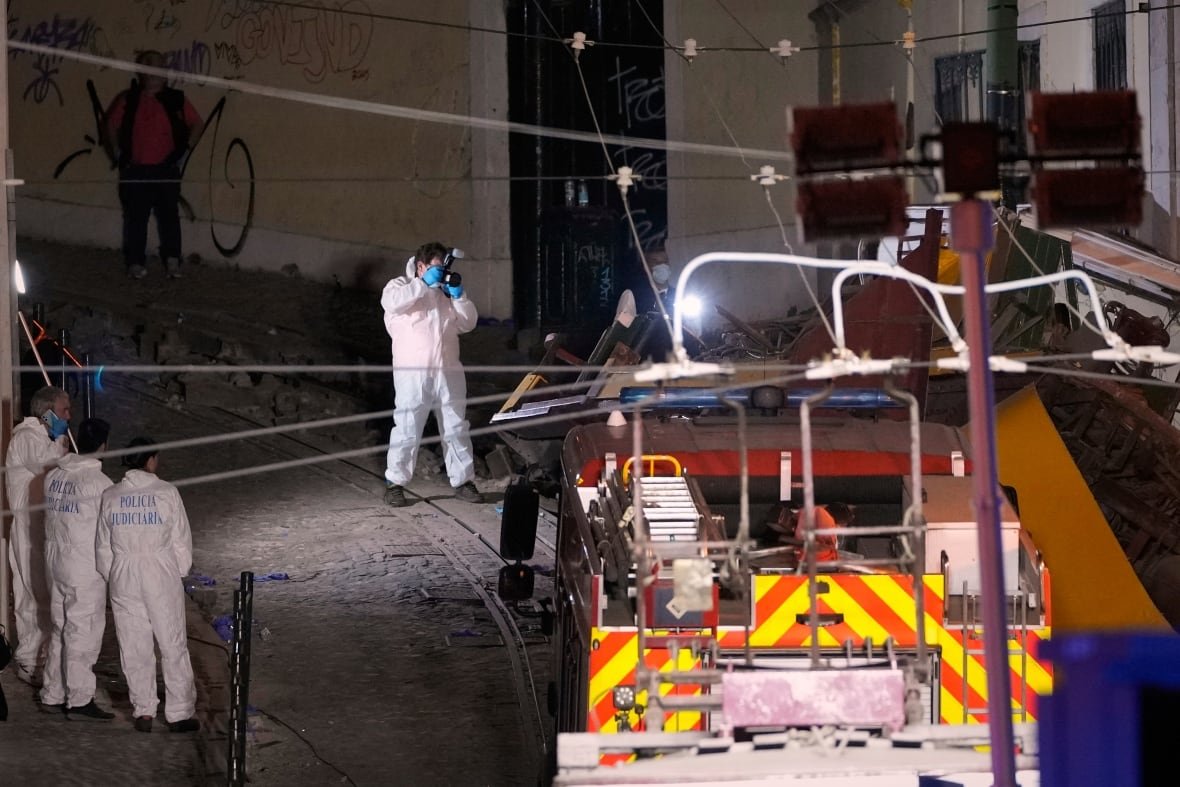
Portugal — and Lisbon in particular — has experienced a tourism boom in the past decade, with visitors cramming the popular downtown area in the summer months.
A spokesperson for Britain’s Foreign, Commonwealth and Development Office said it was in touch with the local authorities and stood by “to provide consular assistance if there are any affected British nationals.”
Britain is the largest source of tourism to Portugal, followed by Germany, Spain and the United States.
Spanish Prime Minister Pedro Sánchez wrote on X that he was “appalled by the terrible accident,” while Italian Foreign Minister Antonio Tajani wrote that he had met with the Portuguese foreign minister and expressed his “solidarity with the victims.”
The U.S. Embassy in Lisbon also offered its “deepest condolences to all affected,” according to a post on X.
